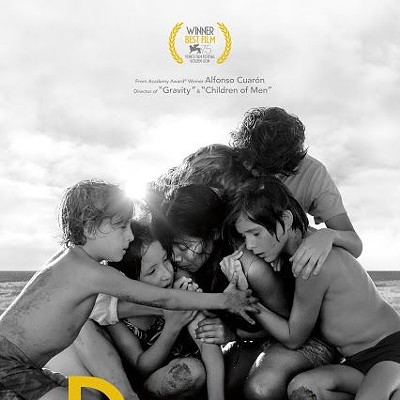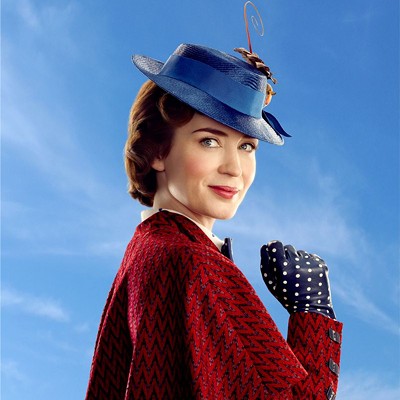Leatherheads
Football may be a rough-and-tumble sport, but Leatherheads is handled by director and star George Clooney with the delicacy one extends toward an antique vase. Working from a script by acclaimed sports writers Duncan Brantley and Rick Reilly, Clooney offers an occasionally wistful look at the early days of professional football, when its popularity was nil and it was viewed as college football's deformed and ignored stepbrother. The year is 1925, and Dodge Connolly (Clooney) has managed to scrape together a career as a football player, assembling his motley crew to travel all over the country to play games in which attendance is anemic, rules are nonexistent, and a player is as likely to throw a punch as catch the pigskin. Just as it appears the entire league will have to fold, Dodge comes up with a brainstorm. Why not convince Carter "The Bullet" Rutherford (John Krasinski), the nation's most popular college football star, to put his studies on hold and join the pro ranks? Carter agrees just about the time that the Chicago daily has elected to send one of its best reporters, tough-talking Lexie Littleton (Renee Zellweger), to determine the authenticity of Carter's WWI exploits. Gaining access to the team, Lexie uses her feminine wiles to cozy up to Carter, all the while engaging in verbal jousts with Dodge. Clooney is an unabashed lover of classic screwball comedies from Hollywood's Golden Era, and he's gone on record stating that his influences for Leatherheads included such great directors as Howard Hawks and George Cukor. His greatest (unacknowledged) influences, however, stem from more recent times, as it's difficult to watch this film without being reminded of the pair of pictures he made with Joel and Ethan Coen. Perennially growing in stature as an actor and director, it's easy to envision Clooney studying the Coens' M.O. while perched on their sets, since Leatherheads sports the same burnished period look as O Brother, Where Art Thou? and the same screwball comedy stylings as the underrated Intolerable Cruelty. Clooney is on his game as the aging brawler who's disheartened by the rigid direction the sport starts to take, but the likable Krasinski often gets defeated by the restrictions of his colorless part. And as Lexie, Zellweger delivers the script's zingers with aplomb, even if she isn't outwardly quite as brash or brassy as the role requires. Leatherheads is full of visual sight gags, whether the humor derives from elaborate setups (the final football game is full of nicely choreographed physical comedy) or merely from repeating the same shot for maximum potency (dig the guy in the swimming pool).
Stop-Loss
Sign of the Times, Part I: While accepting his Oscar in 2003, Michael Moore is loudly booed for criticizing Bush's "fictitious" war in Iraq. Sign of the Times, Part II: During last week's advance screening of the new Iraq War drama Stop-Loss, audience members clap and cheer when Ryan Phillippe's character spits out, "Fuck the president!" As far as cinema is concerned, we're probably still several years away from the definitive Iraq War flick. Stop-Loss at least comes closer than most of the others: Rather than getting buried in ham-fisted armchair liberalism (like Lions for Lambs and Rendition), it carefully tries to include something for everyone on both sides of the war divide. Yet while this approach is a thoughtful one, it can also be a dangerous one, as evidenced by late-inning occurrences that spit in the face of anyone who has ever taken a stand on moral grounds. Helming her first film since 1999's Boys Don't Cry, director Kimberly Peirce (co-scripting with Mark Richard) centers her tale on three Texas boys who all served together in Iraq and have returned to their hometown: Brandon King (Phillippe), a natural born leader and the most intelligent of the three; Steve Shriver (Channing Tatum), a jingoistic grunt prone to repeating canned rhetoric like, "We kill them in Iraq so we don't have to kill them here in Texas!"; and Tommy Burgess (Joseph Gordon-Levitt), the hard-drinking soldier who lost his best friend in the conflict. Having served plenty of time overseas, Brandon expects to settle down stateside, so he's understandably upset when Bush's "stop-loss" policy -- basically, a backdoor draft -- requires him to head back to Iraq yet again. Refusing direct orders, Brandon instead goes AWOL, a decision that irrevocably affects both Steve and Tommy. Despite its serious intentions, Stop-Loss often plays like a softer version of The Deer Hunter, and, without revealing too much, its about-face message ultimately isn't "Fuck the president" as much as it's "Fuck yourself" -- a dispiriting message no matter how it's sliced.
Married Life
Now here's a movie with a cast worth salivating over, but what's the point when the end result turns out to be so negligible? I love the direction of Pierce Brosnan's non-Bond career (The Matador, The Tailor of Panama); Patricia Clarkson constantly earns her designation as an indie goddess; Rachel McAdams quickly (and deservedly) gained her footing as one of Hollywood's best young actresses; and Adaptation Oscar winner Chris Cooper is everyone's idea of an exemplary character actor. Yet director-writer Ira Sachs (adapting John Bingham's book Five Roundabouts to Heaven with co-scripter Oren Moverman) has assembled the quartet for a stifling domestic drama that promises mystery and intrigue yet only succeeds in wasting the talents of these exceptional actors. Set in 1949, this casts Cooper as Harry Allen, a pent-up businessman who seeks romance in a marriage in which his wife Pat (Clarkson, faring best of the four) wants only sex. Harry falls in love with a war widow named Kay (McAdams), and he tells his best friend Richard (Brosnan) that he plans to leave Pat and settle down with the fragile and much younger woman. What Harry doesn't tell Richard is that, because he can't bear the thought of Pat suffering after he leaves her (since he's sure she'll be devastated), he plans to murder her; what Richard doesn't tell Harry is that, from the moment he saw her, he's been plotting to steal Kay away from his longtime chum. Clarkson's presence brings to mind Todd Haynes' superb Far From Heaven (in which she had a supporting role), and one suspects that, like Haynes, Sachs was hoping to present an homage to the Douglas Sirk melodramas of the 1950s. Then again, it's impossible not to notice that McAdams' Kay is dolled up exactly like Kim Novak in Vertigo, so it's possible Sachs was shooting for Hitchcock comparisons. Either way, he falls woefully short, since Married Life lacks any semblance of genuine emotion, leaves out even one iota of sweat-inducing suspense, and collapses under the weight of an ending that not only isn't earned but contradicts its own key revelation. It's best to ignore these scenes from a marriage; stick with Ingmar Bergman instead.
Snow Angels
Until The Assassination of Jesse James By the Coward Robert Ford (in which he appeared as Charley Ford), I didn't think it was possible for Sam Rockwell to play a role in which his actorly tics and mannerisms didn't get in the way of creating a flesh-and-blood person. Watching him in projects as diverse as The Green Mile and Matchstick Men, he doesn't seem to care whether his look-Ma-I'm-acting! brand of emoting meshes with the rest of the project or not. Rockwell's back to his showboating ways in Snow Angels, the fourth feature written and directed by David Gordon Green (All the Real Girls, George Washington). Based on the novel by Stewart O'Nan, this ensemble piece focuses on the lives of several members of a small American community, and specifically on the circumstances (mostly tragic) that bind them together. The central plotline deals with the efforts of town beauty Annie (Kate Beckinsale), wasting away as a waitress at a Chinese restaurant, to keep her seemingly unstable husband Glenn (Rockwell) at bay, even if it means cheating him out of quality time with their young daughter Tara (Grace Hudson). The usual cliches apply here: Annie's carrying on an affair with the lunkheaded husband (Nicky Katt) of her best friend (Amy Sedaris); Glenn turns to God and to the bottle (not necessarily in that order) in an effort to quell his demons; and the spats between Annie and Glenn lead to an obvious conclusion that's made even more painfully obvious by the casting of jitterbug Rockwell. The secondary storyline concerns high school student Arthur (Michael Angarano) and the budding romance he experiences with a quirky classmate (Juno's Olivia Thirlby), a balm to soothe the pain of witnessing his parents' messy split. These sections of the film work primarily because of the charming and natural performance by Angarano, a necessary counterpoint to Rockwell's patented grandstanding.
21
Loosely adapted from Ben Mezrich's fact-based bestseller Bringing Down the House, 21 is an entertaining and fast-paced film that occasionally manages to make the act of counting cards seem as exciting as this past winter's Super Bowl -- and as perilous as climbing Mount Everest with both eyes closed.
Jim Sturgess, fresh off his starring role as Jude in Across the Universe (as well as a supporting turn in The Other Boleyn Girl), plays Ben Campbell, a brilliant MIT student who needs some serious dough in order to be able to afford a stint at Harvard. His intelligence catches the eye of Micky Rosa (Kevin Spacey), a shrewd professor whose extracurricular activity is training a hand-picked group of students in the art of counting cards at the blackjack table. He welcomes Ben to a gang that already includes two guys (Aaron Yoo and Jacob Pitts) and two girls (Kate Bosworth and Liza Lapira), and together they set off on weekly excursions to Las Vegas to clean up. Yet although they believe they're operating under the wire, their winning ways -- not to mention squabbles from within -- catch the eye of Cole Williams (Laurence Fishburne), an old-school casino enforcer whose preferred MO is taking cheaters to a back room and beating them to a bloody pulp. The movie works best during its first act, when the fascinating con game is explained to Ben (and to us), and during its second act, when Ben feels his life spiraling out of control as he makes a series of mistakes that could cost him everything. Scripters Peter Steinfeld and Allan Loeb only really lose control during the third act, when an important plot point too lumpy to swallow leads to a series of increasingly unbelievable developments. Yet even during this convoluted section, director Robert Luketic and a perfectly cast Spacey insure that this stylish film maintains a winning hand.
Drillbit Taylor
As the trio of dweebs who find themselves the perpetual targets of high school bullies, lanky Nate Hartley, rotund Troy Gentile and spastic David Dorfman turn in natural, likable performances that go a long way toward making this dopey comedy even remotely watchable. Even so, the three are basically carbon copies of Superbad's lanky Michael Cera, rotund Jonah Hill and spastic Christopher Mintz-Plasse -- hardly a surprise, given that both films were produced by Judd Apatow and co-written by Seth Rogen. Both movies largely deal with three nerds trying to appear cool to their fellow students; the added attraction here is the character of Drillbit Taylor (Owen Wilson), a homeless man who passes himself off as a bodyguard in order to earn some money protecting the undersized freshmen from the vicious seniors (Alex Frost and Josh Peck) who terrorize them at every turn. An assembly-line comedy in virtually every facet -- you can set your watch by the moment when the formerly aloof Drillbit is visibly moved by a charitable act on the part of one of the kids -- this dispiriting attempt at corralling laughs has little to offer anyone except die-hard Owen Wilson fans, and even those devotees might feel dejected after watching this charming if one-note actor spinning his wheels in such a tiresome character type.
Run, Fat Boy, Run
Run, Fat Boy, Run stars one of the two male leads (Simon Pegg) from Shaun of the Dead and Hot Fuzz, and, no, it isn't the fat one. Instead, it's the average-sized one, immediately nullifying this movie's title. Now if only someone had nullified this picture's very existence, we'd have one less bomb taking up valuable multiplex space. Instead, we're stuck with a wretched comedy whose greatest claim to, uh, fame is that it marks the directorial debut of Friends co-star David Schwimmer. But with friends like Schwimmer, who needs enemies? Along with writers Michael Ian Black and Pegg, Schwimmer has served up a broad, crass and spectacularly unfunny piece about a sad sack who abandoned his pregnant fiancee at the altar on their wedding day. Five years later, Dennis (Pegg) continues to regret the cowardice he displayed on that day, but the only reason Libby (Thandie Newton) hasn't shut him out of her life completely is because she believes their child Jake (Matthew Fenton) should have a relationship with his father. Dennis hopes to somehow win back Libby, but time is running out since she's becoming more heavily involved with a successful businessman named Whit (Hank Azaria). The lazy and physically unfit Dennis is no match for the industrious and health-conscious Whit, but that doesn't prevent him from entering a 28-mile marathon in an effort to gain back Libby's love and respect. It's a thin premise undermined by rampant stupidity at every turn, from the lazy decision to turn Whit into a paper villain (so audiences won't have to strain their brains deciding who's better for Libby) to the infantile brand of comedy that appears at alarming intervals right up to the very end (literally; the final shot in the movie is a close-up of a flabby bare bottom).
Dr. Seuss' Horton Hears a Who!
In Horton's world, "a person's a person, no matter how small," but in our world, a mediocre movie's a mediocre movie, no matter how overhyped, overblown and overbearing. There's a reason that the 1966 TV version of How the Grinch Stole Christmas! remains the best Seuss on film, and that's because its 26-minute length comes closest to approximating the brief reading time of one of the good doctor's delightful books. But when stretched out to 90 minutes, a great deal of padding is needed, thereby maximizing the chances of screwing up the source material. That's definitely the case here, since the basic story -- Horton the happy-go-lucky elephant finds himself ridiculed by the other jungle denizens when he insists that a speck on a flower contains an entire civilization (the residents of Whoville) -- retains its humanist (better make that anthropomorphic) appeal. But the additions to the original content are misguided.
The Bank Job
The Bank Job bills itself as being based on a true story, but given cinema's propensity for fudging details every which way, that's not a declaration that I'd be willing to take to the bank myself. But veracity be damned: Even if every detail of this heist flick was drenched in fiction, it doesn't change the fact that it's one compelling package. The film is set in 1971, which seems right, since one could easily picture the British heavyhitters of that era (Michael Caine, Ian Bannen, Harry Andrews, etc.) appearing in a film just like this one (Caine, in fact, did headline a heist flick during this period, 1969's The Italian Job). And inhabiting the film's central role is Jason Statham, who thanks to a series of action films has become the current poster boy for British roughhousing. The Bank Job gives his character, Terry Leather, a chance to use his brains more than his brawn, and this allows Statham a bit more vulnerability than usual -- his character even has a wife and two daughters, a break from the image of the emotionless lone warrior. Terry is approached by a former acquaintance (Saffron Burrows) to pull off a robbery at a Lloyds Bank that will benefit them both. She has her own reasons beyond monetary gain for making this proposal, and Terry senses that rather quickly. But he and his crew go for it anyway, a decision that involves them in a labyrinthine scandal that not only reaches into the upper echelons of government but also snares the British royal family as well.
Miss Pettigrew Lives for a Day
Romantic without being cynical, witty without being puerile, and blessed by two divine performances from Frances McDormand and Amy Adams. McDormand plays the title character, a British maid in 1939 London who all too suddenly finds herself unemployed. Desperate to remain off the streets, she dupes her way into the position of social secretary to American actress Delysia Lafosse (Adams), a dim but sweet-natured starlet whose biggest problem seems to be choosing between two playboys (Tom Payne and Mark Strong) who can advance her career and a struggling pianist (Lee Pace) who truly loves her. It's a no-brainer ascertaining who gets her hand by the fadeout. Yet despite Adams' screwball-style performance -- as enchanting as her turn in Enchanted -- the film's main source of delight doesn't rest with Delysia's affairs of the heart but with Miss Pettigrew's. A prim woman who lost her beloved during the First World War, Miss Pettigrew has long given up on any chance at romance. That a potential suitor comes along in the form of a successful clothing designer (Ciaran Hinds) seems just right, not only by the demands of the storyline but by the demands of our own hearts.
10,000 B.C.
Playing like a cross between Mel Gibson's Apocalypto and the fanboy fave 300, this empty-headed spectacle centers on a young man who, when it comes to heroes leading their people out of the darkness, emerges as a towering figure worthy of standing alongside Moses, William "Braveheart" Wallace and Michael Moore. Steven Strait plays this warrior, whose name is D'Leh (not to be confused with Homer Simpson's "D'Oh!") and whose bland, pretty-boy countenance makes him a precursor to Malibu Ken.
When he's not busy being tutored by his adoptive father Tic'Tic (Cliff Curtis), D'Leh passes the time by flirting with his one true love, Evolet (blank slate Camilla Belle). Evolet has these piercing blue eyes, but even more noticeable throughout the film is the makeup which surrounds them, and which never gets smeared even after she's been shedding copious tears. Who knew Maybelline existed as far back as 10,000 B.C.?
The Other Boleyn Girl
An often fascinating blend of fact, rumor and outright fabrication, The Other Boleyn Girl feels like an Oscar-bait title that somehow got its DNA mixed up with a daytime soap opera. Based on Philippa Gregory's controversial novel, this tracks the political intrigue and bedroom shenanigans which sprang from the attempts of the Boleyn family to get in the good graces of King Henry VIII (Eric Bana). Prodded on by the most venal member of the clan, the scheming Duke of Norfolk (The Reaping's David Morrissey, as uninteresting as always), the quivering Sir Thomas Boleyn (Mark Rylance) agrees to offer his strong-willed daughter Anne (Natalie Portman) to the king as replacement for his majesty's current wife Catherine (Ana Torent), who has been unable to produce a male heir. But after Anne quickly falls out of Henry's favor, the men serve up Anne's demure sister Mary (Scarlett Johansson) instead; a torrid love affair takes place, but when that begins to cool thanks to Henry's growing disinterest, Anne is brought back onto the scene. If Charles Laughton (winning an Oscar for 1933's The Private Life of Henry VIII) was the chunkiest Henry VIII ever put on film, then Bana might be the hunkiest, but it's hardly a desirable tradeoff, given the actor's drowsy performance.
His female co-stars fare better, though it's hard to accept the physically dissimilar Portman and Johansson as flesh-and-blood siblings.
Penelope
An ugly duckling of a movie, Penelope is a sweet but clumsy fable that's pleasing without being distinguished. Christina Ricci has always sported a nose that tilts upward, so it's perhaps either lazy casting or a sly in-joke that she was the one chosen to essay the title role, a poor little rich girl suffering from an ancient family curse that saddled her at birth with a pig's snout. Now 25, Penelope has been a prisoner in her own home by her busybody mother (Catherine O'Hara), who only allows blueblood bachelors to visit her daughter in the hopes that one of them will ask for her hand in marriage. A reporter (Peter Dinklage) who's forever been trying to get a photo of Penelope hears of this arrangement, and he hires a down-and-out playboy (Atonement's James McAvoy) to gain entry and take the snapshot; needless to say, real feelings develop, hearts get broken, and, as in Babe: Pig In the City, our protagonist finds herself adrift in the city.
Semi-Pro
Will Ferrell as an idiotic guy prone to infantile outbursts -- check. Ferrell making loud noises and running around like a goofball in a desperate attempt to generates laughs -- check. Ferrell sporting a laughable hairstyle (this one vintage 1970s) -- check. Ferrell surrounding himself with his comedian friends, some with extremely limited talent -- check. Ferrell resorting to ca-ca and pee-pee level jokes with alarming regularity -- check. Ferrell making more loud noises -- check. And so it goes, reaching a point of such creative bankruptcy that Ferrell stands poised to become as tiresome a screen jester as Robin Williams.
Jumper
Jumper is Highlander for a new generation: a cheesy, globetrotting film certain to be savaged by most critics, but also a mindlessly entertaining yarn likely to lead to a string of sequels and/or TV adaptations. Hayden Christensen, still struggling with that wooden aspect of his acting, plays David Rice, a kid who discovers he has the ability to "jump" to any location on the planet in a matter of seconds.

























